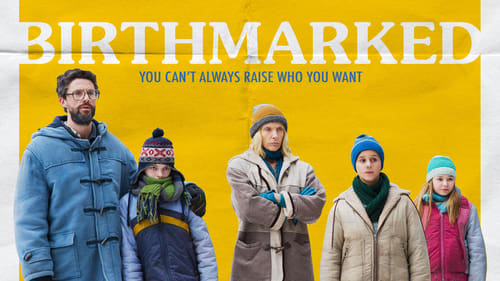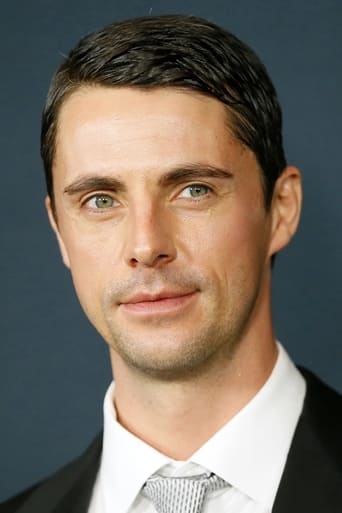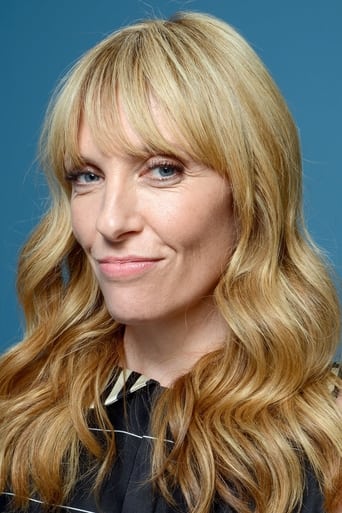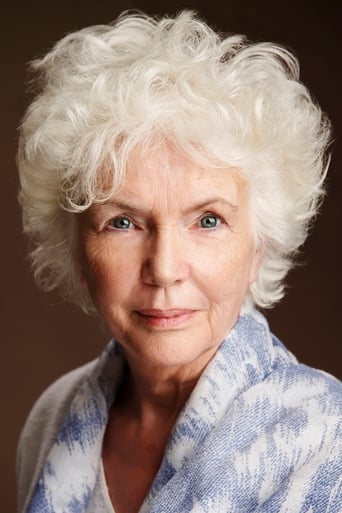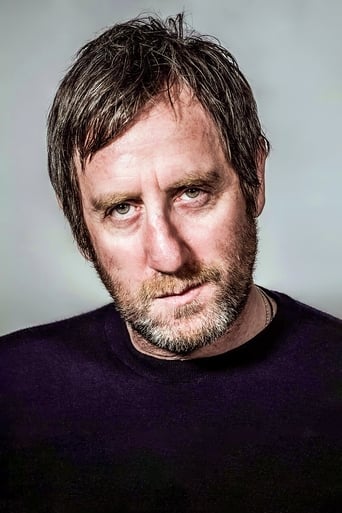Maidgethma
Wonderfully offbeat film!
Stevecorp
Don't listen to the negative reviews
Jenna Walter
The film may be flawed, but its message is not.
Stephanie
There is, somehow, an interesting story here, as well as some good acting. There are also some good scenes
clintstevens
What a silly waste of 90 minutes. The movie makes no sense. The adults are shown to be supposed scholars, which is far from the case. The only smart characters are the three children. Watching the father encourage his young son to have sexual stimulation by forcing him to watch old vintage photos of naked women was, at the very least, disturbing. And the fact that the boy walks out shows which one is the smart one.Billed as a comedy, I found nothing at all humorous in the story. I am sure there are pseudo-intellectuals who will find hidden meanings and symbolism here, but I found it to be a waste of time.
rosenda-13697
I love how each character relates to each other, the humor, the concept, the twist.
Maybe its not the best of movies but it is definitely a must watch !!!
TARUN VERMA
This is what all happens in the film:
1) Two scientists (Ben and Catherine) marry, and decide to raise kids as an experiment to prove power of nurture over nature. One would be their own son, Luke, with scientific inheritance but would be raised as an artist. Another one would be the daughter (Maya) of ordinary middle class people but would be raised as an intellectual. The third one, Maurice, with family history of violence and anger would be raised as a pacifist in Gandhian ideology.2) They approach a rich man (Mr. Gertz) who is interested in science and ask for funds. He agrees as he finds their idea groundbreaking.3) They raise the children on a secluded country-side house which belongs to Ben's forefathers. One of them is an assistant (Samsonov) hired by Gertz to help the family as well as keep a record of "parenting experiment".4) The experiment goes wrong and children become frustrated by their parents and their ways of treating them. Specially the father who is focused on doing anything in the name of science (showing his son pornographic pics of nude women and ask him to convert his sexual desire by performing a dance while looking at the pics) while the mother is shocked to see their moral behaviors (they act out a sex scene while performing a play from a pornographic novel), especially their sexual development and thoughts.5) Mother becomes ill, possibly depressed, and her doctor advises to go on a leave of few days outside their residence. After some clashes between the parents, they decide for the holiday. While this trip is being planned, children decide to run away from house and injure parents and the assistant by the car.6) Court takes away the kids and sends them to a special care school while parents separate from each other. Meanwhile, Gertz tells them that the parents have to pay him $1.4 million as the experiment has failed. He also discloses another experiment that he was doing on Morin family with the help of Samsonov, where he was recording the behaviors of parents and the whole family. So he puts another choice in front of them. They have to sign a document where they will have no objection to whichever way Gertz publishes the results of his two experiments. If they accept this condition, they he will relieve them of that repay of fund money. They both agree to this.7) The story takes a turn when through a book, the kids come to know about the experiment their parents were doing on them. Parents apologize to them and the family reunites.The film lacks emotions, becomes boring, is highly predictable, and does not excite at any point. Ben is a very lethargic character, who seems over-exhausted throughout the movie, as if he is doing some great science which is not shown anywhere. Except few places like where he does a maze experiment where he sets up a furnace and asks the daughter to move a rat through the maze and decide which direction rat has to take. One of her decisions throws the rat in the furnace and the girl screams out of guilt and fear. The experiment looked even poorer than a 6th grade model. Most lacking thing from the movie was almost zero depictions of any real experimental stuff. There was really no science anywhere. Catharine, the mother, looked like a typical mother throughout the movie, and not any great scientist doing some family experiment. She is a worried mother, who is concerned about her children getting aggressive or displaying immoral sexual acts. She is bothered about where this whole experiment thing is going and doesnt find herself comfortable in continuing this "science". Then she gets depressed by all the family stress and decides to take medicines. Her husband is careless and does weird science discussions or has those thoughts. She seems to be the one who is concerned in putting family together and father is following her all the time. Ben is a confused scientist and a confused father who doesn't have any clue to what he is doing. He reads about some new scientific finding and begins to implement on the kids, which obviously kids dislike (like giving beans for dinner and throwing away TV).The movie brings issues of ethical science into discussion when Gertz threatens Morin family with the publication of his findings regarding the sort of experiment he was attempting on the Morins. His experiment sounded unethical and cruel. The best part is that the film makes a satire on scientific researches involving humans and capitalist market exploiting science for its own needs. Gertz is a rich man with enough money inherited to invest in science. But he cares least about any good science and in turn wants to earn fame and recognition through unethical practices. He is apathetic to the emotions of a family for the sake of his pride and fame. He exploits scientists as well as a family. Overall, the movie is a good watch, a different story and a must watch. Film justifies family bonds and emotional ties over the abstract ideology of science. There are certain elements inherent to human nature which science can not capture under any objective lens. More than nurture vs nature, it was film about subjectivity vs objectivity, real vs abstract, and science vs emotions. The kids turn out to be different from what their parents were experimenting for. Finally it was the personal experience that wins in the end, and neither nature nor nurture.
David Ferguson
Greetings again from the darkness. Billed as a comedy, the movie will leave most viewers wondering wherefore art the laughs. Filmmaker Emanuel Hoss-Desmarais and his co-writer Marc Tulin aim high with a grown-up level look at the trials and tribulations of parenting - complicated here by a science experiment gone awry. Matthew Goode plays Ben, the son of a long line of renowned scientists, and Toni Collette plays Catherine, the daughter of two noted physicists. The two nerds (a term of admiration) meet in graduate school, fall in love, and hatch a plan to conduct a revolutionary sociological scientific experiment. In 1977 they convince an arrogant and glory-seeking rich guy named Gertz (Michael Smiley) to fund an experiment with a premise that boils down to their intention of settling the nature vs. nurture debate once and for all.Ben and Catherine plan to take their biological son Luke and turn him into an artist, while at the same time raising two adopted kids contrary to their genetic heritage. Maya, born into a family of "nitwits" will be raised as a Brainiac, while Maurice, born into a violent household, will be developed as a pacifist. It's an interesting set-up that also includes Russian athlete Samsonov (Andreas Apergis) as their live-in caregiver/nanny, and Mrs. Tridek (Fionnula Flanagan) as Gertz's well-meaning assistant.The story jumps ahead to 1989 when Gertz arrives for the 12 year check-up and evaluation. When he deems the children to be "average", Ben and Catherine are devastated. Gertz threatens them with bankruptcy if the experiment isn't successfully expedited so he can publish the desired results. Mrs. Tridek also functions as the narrator who fills in the gaps with some details that might ordinarily leave us a bit confused. Predictability rears its ugly head in the final act, and the film slips into more traditional cinematic story-telling and characterizations. Emotions and greed are the natural responses to the deception that has occurred, and while the adults leave us disappointed, it's at this point where the story finally shifts to the kids and we get to see the winner in the nature vs. nurture battle. Where the film works best is in its look at just how powerful and overwhelming parenting can be, regardless of the brain power and intentions one brings to the situation. Toss in some greed and the power of biology, and the final analysis can't be shocking, even if the film itself doesn't quite live up to its premise.

